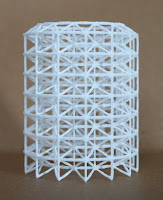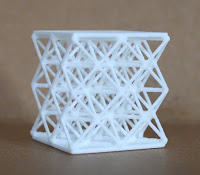Here's the abstract:
In predictive science, computational models are used to make predictions regarding the response of complex systems. Generally, there is no observational data for the predicted quantities (the quantities of interest or QoIs) prior to the computation, since otherwise predictions would not be necessary. Further, to maximize the utility of the predictions it is necessary to assess their reliability|i.e., to provide a quantitative characterization of the discrepancies between the prediction and the real world. Two aspects of this reliability assessment are judging the credibility of the prediction process and characterizing the uncertainty in the predicted quantities. These processes are commonly referred to as validation and uncertainty quantification (VUQ), and they are intimately linked. In typical VUQ approaches, model outputs for observed quantities are compared to experimental observations to test for consistency. While this consistency is necessary, it is not sufficient for extrapolative predictions because, by itself, it only ensures that the model can predict the observed quantities in the observed scenarios. Indeed, the fundamental challenge of predictive science is to make credible predictions with quantified uncertainties, despite the fact that the predictions are extrapolative. At the PECOS Center, a broadly applicable approach to VUQ for prediction of unobserved quantities has evolved. The approach incorporates stochastic modeling, calibration, validation, and predictive assessment phases where uncertainty representations are built, informed, and tested. This process is the subject of the current report, as well as several research issues that need to be addressed to make it applicable in practical problems.






